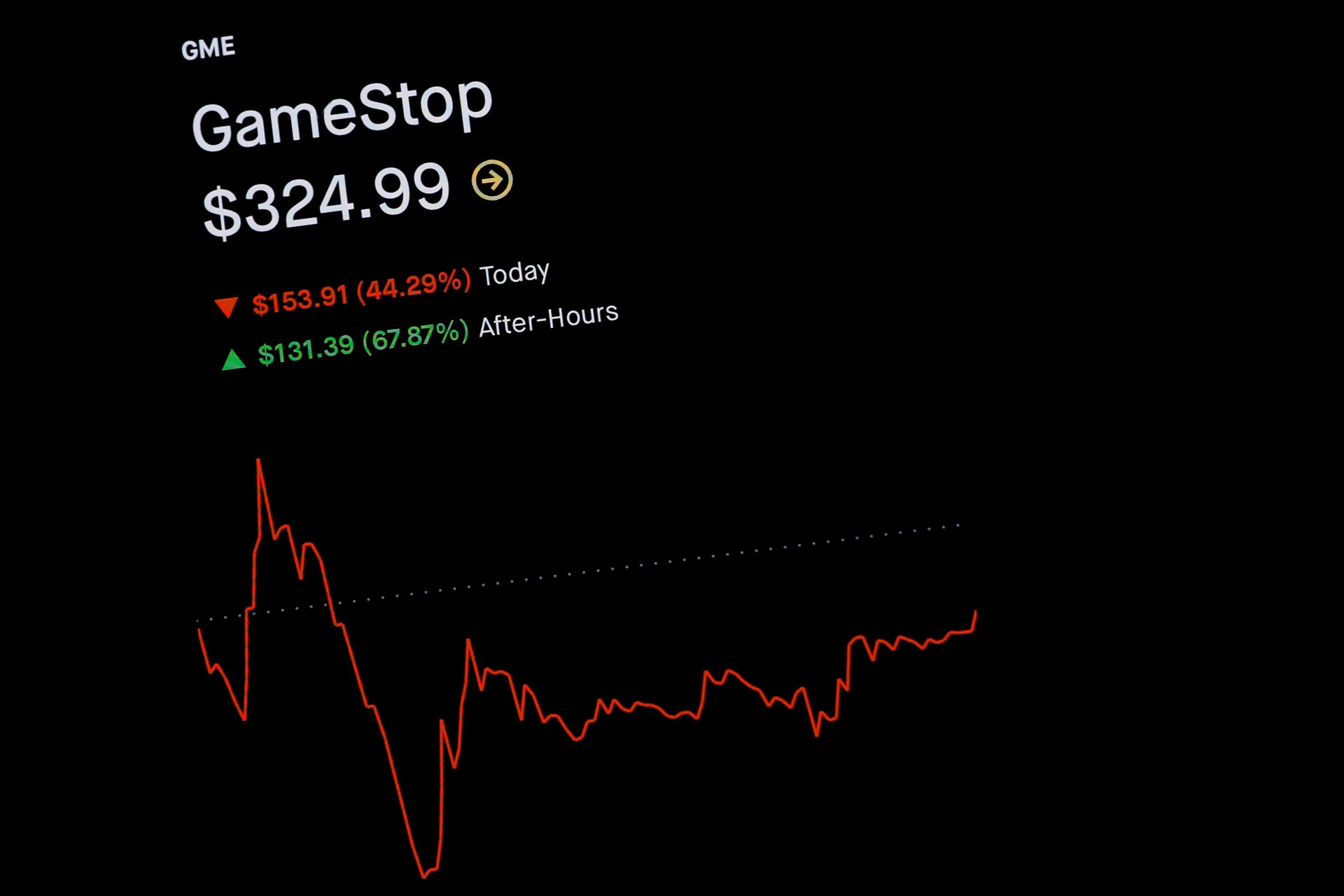Who will pop the GameStop bubble?
GameStop hasn’t crashed out yet.


GameStop hasn’t crashed out yet.
Not only is the Reddit-inspired short squeeze on the video game retailer’s stock still in play—it’s spreading. By Friday’s market close, trading app Robinhood had expanded its restrictions on trading GameStop to 50 other companies. As of Monday morning, the Reddit crowd’s latest tack was to jack up the price of silver.
Dramatic swings in GameStop and other stocks targeted by amateur investors suggest that the volatility of the past week, when GameStop’s stock rose 323%, could cascade across the market. That dovetails with other signs of excessive market risk-taking, stoked in part by the Federal Reserve’s easy monetary policy. The S&P 500 has risen 66% since March and stocks are approaching their highest valuations in two decades. Even the executives of runaway shares like Tesla, Snowflake, and Airbnb have suggested their companies are overvalued.
What the Fed is saying about the GameStop short squeeze
To be sure, there are other drivers feeding the market run-up: talk of a long-awaited technology boom, the prospect of effective vaccines, and a retail investing boom sparked by trading apps like Robinhood, pandemic boredom, idle savings, and stimulus checks. But if GameStop’s stock craze is a sign of a market coming unhinged from reality, as many market watchers suggest, the question is whether and how to prevent a crash.
For now, the Fed isn’t up for taking the blame. In comments following its policy meeting last week, Fed chair Jerome Powell said the connection between ultra-low interest rates and asset values is probably “not as tight as people think because a lot of different factors are driving asset prices at any given time.” The Fed also isn’t that good at pricking market bubbles, Powell added. “We don’t really think we’d be successful in every case in picking the exact right time to intervene in markets.”
Should the Fed burst bubbles?
Central banks have been under more heat in recent years to manage market bubbles with the rise in dramatic market ups and downs. But many economists argue interest rates are a blunt tool for that. “It’s always hard to surgically attack an asset bubble without making it worse,” says David Beckworth, an economist at George Mason University. “There are plenty of examples of destruction from the Fed trying to prick a bubble.” He points to botched Fed interventions after the 1920s equities boom, which ushered in the Great Depression, and in 2015 after the Fed’s quantitative easing, a hike that slowed the post-financial-crisis recovery.
One issue is that not all asset bubbles are the same. Investors are arguably better equipped to target stock market bubbles that crop up in certain areas, like the bubble that gripped technology stocks in the 1990s, and bet against them. As a bank regulator, the Fed is better positioned to pinpoint bubbles resulting from a credit boom. In response to the housing crisis of the 2000s, for example, the Fed had the intel and tools to tighten banks’ underwriting standards and excessive easy credit.
What GameStop’s bubble looks like
The fallout from some bubbles is also more tolerable than others. Beckworth points out that the crash from the ’90s tech boom had a more muted effect compared to the housing crisis. Because the tech boom was equity-financed, it mostly hit tech companies and their investors, whereas the housing crisis tanked the entire economy. The resulting recession from the tech bust was relatively short and shallow, lasting eight months and causing only a minor dip in growth and employment.
In this case, shares of GameStop and other companies in the Reddit rally are still only a tiny share of the market. And even if there were a broader market correction, it isn’t clear that it would cause a big contraction, says Beckworth. “People would lose equity, but it wouldn’t lead to the problems of homes financed with mortgages and exotic mortgage securities,” he adds.
Picking the Fed’s battles
The Fed is weighing the fallout of such a correction against concern about the broader recovery. “If you raise interest rates enough to really change people’s expectations, you are dealing with a very high likelihood of causing a recession,” says economist Adam Posen of the Peterson Institute for International Economics. “On the other hand, if you raise interest rates quite a bit, you are not by any means assured that you would pop the bubble.”
An alternative backstop is to ensure the volatility doesn’t reach the balance sheets of financial institutions. That Robinhood, the trading platform at the center of the GameStop frenzy, didn’t have enough capital to carry out its transactions is a “flashing warning sign that we need to rethink how much capital firms like these need,” says Posen. “I don’t care if Robinhood or a hedge fund goes out of business as long as their failure doesn’t lead to a cascade of failures to make payments.”
Posen and other economists advocate for the Securities and Exchange Commission to ratchet up the reporting and leverage requirements on firms like Robinhood, to align with the heftier regulations on banks. The SEC already requires brokerages to meet certain capital thresholds and clear its trades through third parties. Since Robinhood cited these requirements as its reason for tamping down GameStop trading, more of those rules just might work.